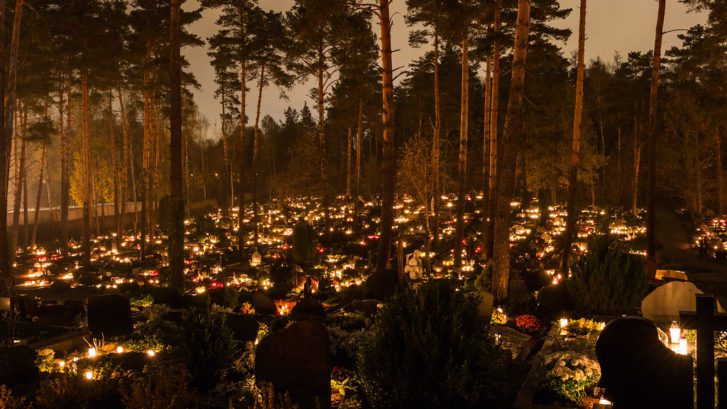Many years ago, Morris West wrote a successful novel called the Devil’s Advocate. I cannot remember much about it, but I do recall the main character. He is an English Monsignor, Blasé Meredith, a Vatican official in the congregation of rites. He is a lifeless and dry person; his only passion was books and work.
He would rather deal with papers than people. His prayer life was not very deep, he loved God, but at a distance. As the book opens, a doctor is telling Monsignor Meredith that he has cancer and does not have long to live. For the first time, he discovers that his faith is weak. His faith has never been tested and now it is too thin a staff to lean on. Faith, after all, should assure us that we are never alone or abandoned.
Even in the loneliest act of our life, which is dying Monsignor Meredith needed to learn all this and not from a book. For his last few months of life, he chose an assignment. He always did this when the going got tough; work would mean that he did not have to face up to reality.
He was to go to a village in southern Italy to investigate the cause of a man killed by Nazi’s. The man had been a Christ-like figure in the village serving the needs of the people. He was cajoling and even compelling them to be more human with each other. To share their scarce food and to bear each other’s burdens.
He led them in prayer as he ministered to them he gave them hope. The villagers were convinced they had a genuine saint and a martyr, so they asked the Vatican to start an investigation. It was also possible that it was all just a ploy to get a famous shrine that would attract people to this tiny village. Monsignor Meredith starts to get to know the people living in the village.
There is a Jewish doctor who has lost his Jewish faith. There is a parish priest who was a frightened old man who is scared to have an official from Rome living in the village. There is also an English painter, a local Countess and the young son and wife of the alleged saint. Something begins to happen to the Roman official.
It is called “Ministry” or “Response to Need” it is the principal way holiness comes. He does something that he has never done before. He gets involved not with books, not so much with the report, but with people’s lives. He wrestles with the problems of the living and not the dead.
Finally, as his illness is gaining on him every day he sends to Rome his report on the candidate for sainthood. But, he adds that he is more concerned about the welfare of certain souls in the village. In his last days, he concludes his report which Rome will adjudicate and he also disposes of his worldly goods.
He confers a stipend on the parish and helps the parish priest turn his life around. He helps the English painter die peacefully and reconciles him to God. He helps the Countess redirect her life and she starts taking care of the poor in the village. He makes sure that the saint’s wife and son have enough to live on and that the boy can go to school.
The Jewish doctor sees his faith in humanity rekindled because of Monsignor Meredith. The monsignor, the dry cleric from Rome, is now so closely involved with these people that his last request is to be buried there. A place that someone in Rome called that “stinking, little village.”
What happened to Monsignor Meredith? What changed him? You could say he became a saint, but not a canonized saint with a capital S. He had become more fully human which is God’s will for all of us. He had learned to love his neighbor, not by prayer alone.
But by sharing his worldly goods, patience, time, love and compassion. How do you and I become holy? The same way. Respond to someone’s need, it will prove to be a response to our own need. To become a better human person, a brighter image of the loving God who made us.
At the end of his play, Joan of Arc, George Bernard Shaw wrote, “O God that made this beautiful earth, when will it be ready to receive your saints? How long, O Lord, how long?” The times seem evil and all manner of things are wrong. But goodness and grace will not be overcome.
Saints are in the making every day and they are sitting all around you. Always remember, a saint is just a sinner who keeps trying.


